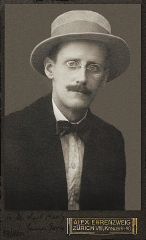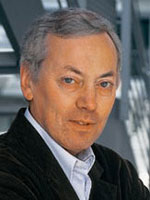Sadly, since this interview was recorded, the Pulitzer Prize-winning poet Charles Simic has died at the age of 84.
Note: This interview was broadcast on KUT-FM, an NPR station based in Austin, Texas.
 Kate Rosenberger is one of those rare people who collects independent book stores in San Francisco the way the rest of us collect antique door stops, or unusual African masks. Her most recent acquisition is Alley Cat Books, but she also owns Phoenix and Red Hill Books, and we met at Dog Eared Books, her fourth store, in the Mission district.
Kate Rosenberger is one of those rare people who collects independent book stores in San Francisco the way the rest of us collect antique door stops, or unusual African masks. Her most recent acquisition is Alley Cat Books, but she also owns Phoenix and Red Hill Books, and we met at Dog Eared Books, her fourth store, in the Mission district.

When asked to discuss a piece of writing that’s had a profound impact on her, Kate chose Charles Simic‘s poem Gray-Headed Schoolchildren. Born in Serbia, Simic came to the US as a teenager, but went on to write his poems in English, win the Pulitzer prize, and become the U.S. Poet Laureate. His poetry is often stark, perhaps reflecting his formative years, spent surviving World War II.
 Note: This interview is the sixth in a ThoughtCast series which examines a specific piece of writing — be it a poem, play, novel, short story, work of non-fiction or scrap of papyrus — that’s had a significant influence on the interviewee, that’s shaped and moved them. Prior interviewees include author Tom Perrotta, poetry critic Helen Vendler, and other independent bookstore owners – from Ireland!
Note: This interview is the sixth in a ThoughtCast series which examines a specific piece of writing — be it a poem, play, novel, short story, work of non-fiction or scrap of papyrus — that’s had a significant influence on the interviewee, that’s shaped and moved them. Prior interviewees include author Tom Perrotta, poetry critic Helen Vendler, and other independent bookstore owners – from Ireland!
Click here  to listen (11 minutes.)
to listen (11 minutes.)
Podcast: Play in new window | Download
Subscribe:
 to listen!
to listen!




 Note: This interview is the sixth in a ThoughtCast series which examines a specific piece of writing — be it a poem, play, novel, short story, work of non-fiction or scrap of papyrus — that’s had a significant influence on the interviewee, that’s shaped and moved them. Prior interviewees include author
Note: This interview is the sixth in a ThoughtCast series which examines a specific piece of writing — be it a poem, play, novel, short story, work of non-fiction or scrap of papyrus — that’s had a significant influence on the interviewee, that’s shaped and moved them. Prior interviewees include author  Want to know how the world is going to end? Just ask Russian cosmologist
Want to know how the world is going to end? Just ask Russian cosmologist